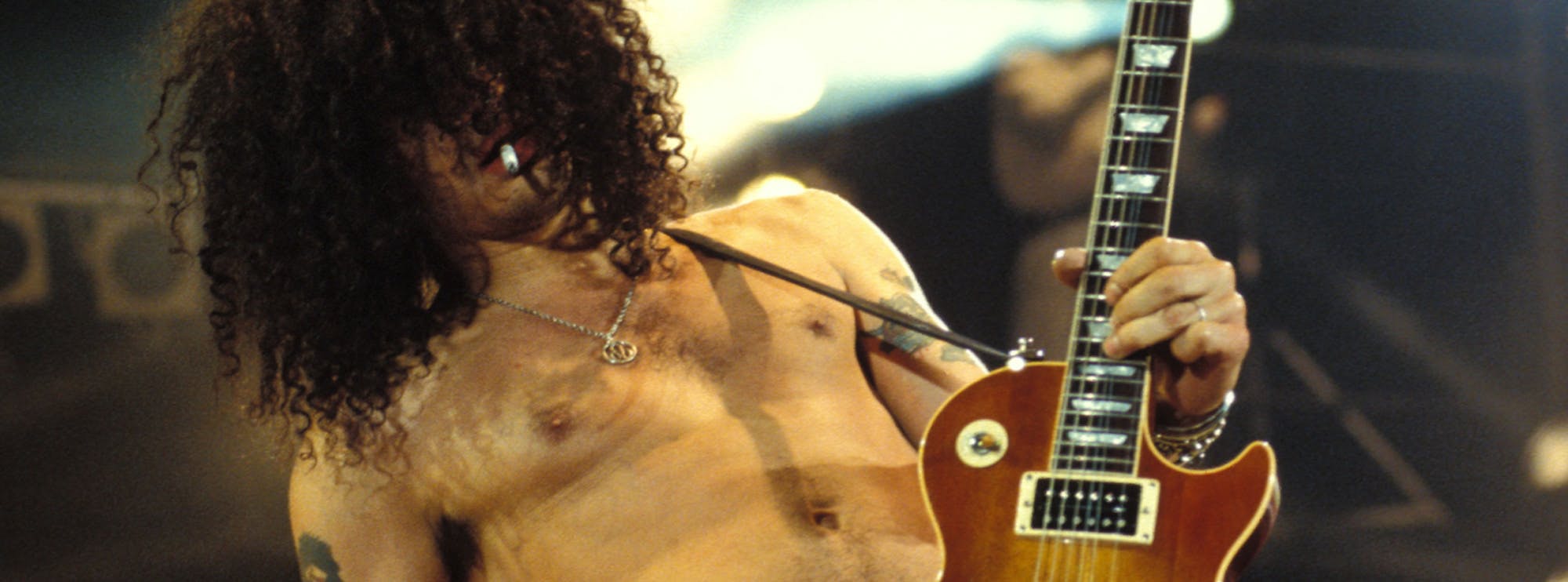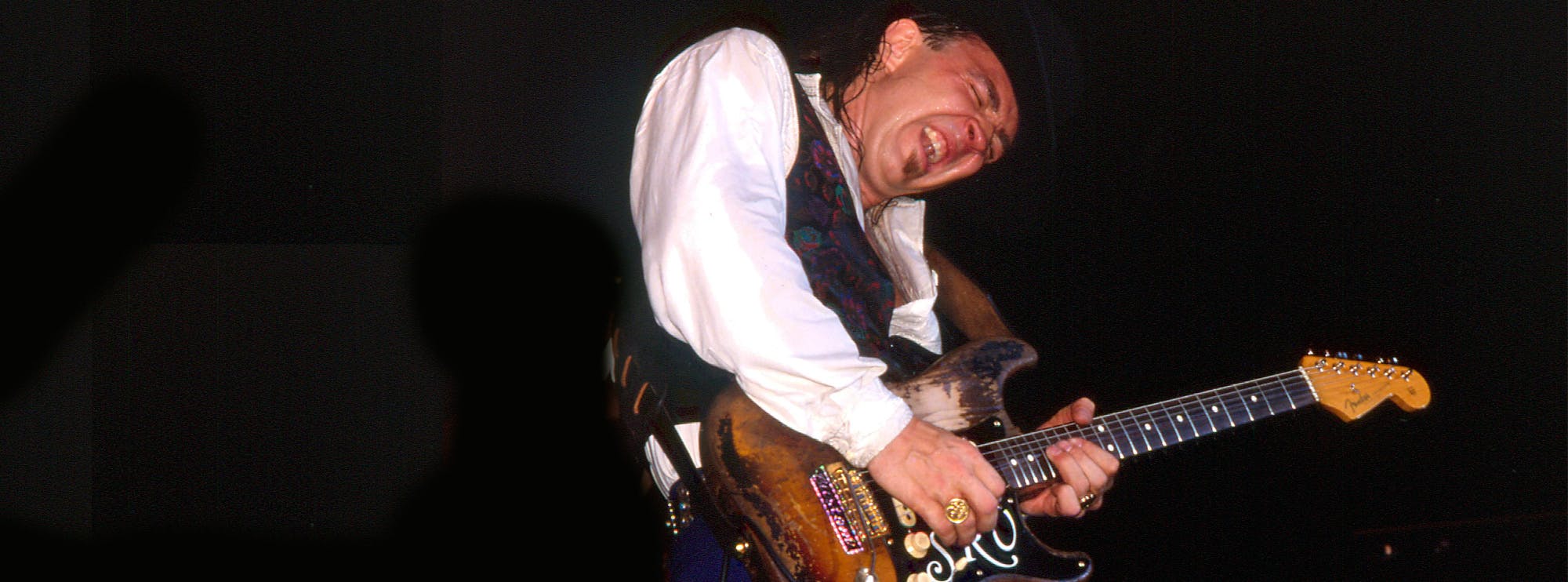Hotel California by the Eagles: A guitarist's perspective
Guitar lessons by Danny Gill
"Hotel California" is the fifth studio album by American rock band The Eagles, released in 1976. It remains one of the most iconic and influential albums of all time, especially from a guitarist's standpoint. With the perfect blend of intricate melodies, harmonies, and guitar techniques, the album showcases the skills of the lead guitarists, Don Felder and Joe Walsh. Hotel California is a showcase of the band’s evolving musical style as the band made a conscious decision to move away from country rock in this album, and with Joe Walsh joining the band they added more of a rock and roll influence, which can be heard in the classic songs such as “Victim of Love” and “Life in the Fast Lane”.
In this guitar lesson course, LickLibrary veteran, Danny Gill walks you through the many highlights of each song from the music giants one phrase at a time, including the multi-layered legendary guitar solo from the album’s title track.. This article aims to provide a deep-dive into the album's guitar work, exploring each song, the scales used, and a detailed analysis of the solos.
Track by Track Analysis
1. Hotel California
The album's title track features a captivating fingerpicked arpeggiated progression in B minor, utilizing the B Aeolian mode. The song features one of the most famous guitar solos in rock history, a dual-guitar harmony between Don Felder and Joe Walsh. The solo is played using a mix of pentatonic and diatonic scales, focusing on B minor pentatonic and B Aeolian mode. Felder and Walsh utilize techniques such as string bending, slides, and hammer-ons throughout the solo.
2. New Kid in Town
"New Kid in Town" is a ballad in G major, featuring a melodic chord progression that explores the G Ionian mode. The rhythm guitar primarily uses arpeggiated chord progressions and finger-picking techniques. The lead guitar, played by Felder, uses a mix of G major pentatonic and G Ionian scales, with a few licks from the G Mixolydian mode. The solo features techniques such as string bending, slides, and double-stops.
3. Life in the Fast Lane
This hard rock anthem is played in the key of E minor, with the guitar riff based on the E Dorian mode. The rhythm guitar employs power chords, palm muting, and syncopated rhythms. Felder's solo explores the E Dorian and E minor pentatonic scales, incorporating techniques such as alternate picking, legato, slides, and string bending.
4. Wasted Time
"Wasted Time" is a heartfelt ballad in F major. The rhythm guitar uses arpeggiated chord progressions and finger-picking techniques, while the lead guitar focuses on the F Ionian and F major pentatonic scales. The solo is rich in emotion, with techniques such as vibrato, string bending, and slides being used to convey the song's sentiment.
5. Wasted Time (Reprise)
The reprise features a beautiful orchestral arrangement, with Felder playing a short but soulful guitar solo using the F major pentatonic scale. The solo employs techniques such as string bending, vibrato, and slides.
6. Victim of Love
"Victim of Love" is a rock track in D minor, with the rhythm guitar using power chords, palm muting, and syncopated rhythms. Felder's lead guitar explores the D Aeolian mode and D minor pentatonic scale, with techniques such as alternate picking, string bending, and slides. The solo showcases Felder's skill in playing fast-paced licks and melodic phrases.
7. Pretty Maids All in a Row
This ballad in A major highlights Joe Walsh's lead guitar work, using the A Ionian and A major pentatonic scales. The rhythm guitar features arpeggiated chord progressions, while the solo showcases techniques such as string bending, vibrato, and slides.
8. Try and Love Again
"Try and Love Again" is an uplifting song in A major. The rhythm guitar employs arpeggiated chord progressions and finger-picking, while the lead guitar, played by Randy Meisner, focuses on the A Ionian and A major pentatonic scales. The solo showcases techniques such as string bending, vibrato, and slides, conveying a sense of hope and resilience.
9. The Last Resort
The album's closing track, "The Last Resort," is a poignant ballad in E major. The rhythm guitar uses arpeggiated chord progressions and finger-picking techniques. Felder's lead guitar explores the E Ionian and E major pentatonic scales, with a few licks from the E Mixolydian mode. The solo is characterized by its melodic and emotional phrasing, featuring techniques such as string bending, vibrato, and slides.
Don Felder's Contribution
Don Felder's contributions to "Hotel California" are vital in shaping the album's distinctive sound. As the lead guitarist, Felder displays a remarkable blend of technical skill, melodic phrasing, and emotive expression. His memorable solos and intricate harmonies elevate each song, showcasing his talent and versatility. Felder's ability to seamlessly incorporate diverse guitar techniques and explore various scales and modes adds complexity and depth to the music. His collaboration with fellow guitarist Joe Walsh, particularly in the iconic title track, solidifies his legacy as an influential and accomplished musician.
Joe Walsh’s Contribution
Joe Walsh's contributions to "Hotel California" add a dynamic and powerful element to the album's guitar work. As a co-lead guitarist alongside Don Felder, Walsh displays his exceptional talent through captivating solos, melodic riffs, and harmonies. His playing in songs like "Life in the Fast Lane" and "Pretty Maids All in a Row" highlights his versatility and ability to adapt to various styles. Walsh's collaboration with Felder in the title track's iconic dual-guitar harmony solo showcases their combined prowess and chemistry, making "Hotel California" an enduring classic for guitar enthusiasts.
In conclusion, "Hotel California" by The Eagles remains a timeless classic that continues to captivate guitarists and music lovers alike. With its intricate guitar work, memorable solos, and masterful performances by Don Felder and the rest of the band, the album serves as a prime example of what can be achieved through a combination of skill, creativity, and passion. Whether you're a seasoned guitarist or just starting your journey, there's something to learn and appreciate in the guitar work of this iconic album.
Guitar Techniques Used in Hotel California
The "Hotel California" album showcases a diverse range of guitar techniques that contribute to its iconic status. Finger-picking and arpeggiated chord progressions are prevalent throughout, adding texture and depth to the songs. Techniques such as string bending, slides, and vibrato are used to express emotion and add nuance to the solos. Lead guitarist Don Felder masterfully employs alternate picking, legato, and palm muting to create intricate, syncopated rhythms and riffs.
Power chords and open-string riffs lend a driving force to the album's rock anthems, while double-stops and bluesy bends provide a soulful touch to the ballads. The use of dual-guitar harmonies, particularly in the title track's solo, showcases the band's skill in crafting memorable, melodic phrases. Chromaticism and the exploration of various scales and modes add complexity and interest to the guitar work, solidifying "Hotel California" as an essential album for guitarists to study and appreciate.
Below is a list of techniques used, along with links to learn more about each technique:
- Vibrato
- Alternate Picking
- Legato
- Double-Stop Bends
- Trills
- Tremolo Picking
- Chord Progressions
- Arpeggios
- Pull-Offs
- Power Chords
- Palm Muting
- Barre Chords
- Finger-Picking
- Hybrid Picking
- Hammer-Ons
- Double-Stops
- Slides
- Sustain
- String Bending
- Syncopated Rhythms
- Open-String Riffs
- Chromaticism
- Altered Tunings
- Arpeggiated Chord Progressions
- Bluesy Bends
- Octave Melodies
- Dual-Guitar Harmonies
About The Tutor
Tutor Profile
Danny Gill
Danny Gill is, without a doubt, the most loved tutor by our community. With an incredible array of DVDs and web lessons for LickLibrary covering a wide variety of topics all of which he covers with incredible detail, it's no wonder he carries as much respect as he does. As...




